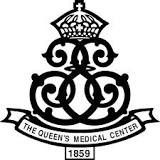Chemotherapy Response Monitoring With 18F-choline PET/CT in Hormone Refractory Prostate Cancer
| Status: | Active, not recruiting |
|---|---|
| Conditions: | Prostate Cancer, Cancer |
| Therapuetic Areas: | Oncology |
| Healthy: | No |
| Age Range: | 18 - Any |
| Updated: | 4/21/2016 |
| Start Date: | June 2009 |
| End Date: | May 2016 |
The purpose of this study is to determine whether imaging with 18F-choline PET/CT can
provide information that may help guide subsequent investigational or clinical treatments
for patients with advanced (hormone-refractory) metastatic prostate cancer.
provide information that may help guide subsequent investigational or clinical treatments
for patients with advanced (hormone-refractory) metastatic prostate cancer.
Patients who meet eligibility criteria and are enrolled will undergo whole-body imaging with
18F-choline PET/CT at 3 time points during the course of treatment that is indicated for
castrate resistant prostate cancer. The 1st PET/CT scan is performed at baseline before
treatment initiation. The 2nd and 3rd scans are performed at two other treatment-releated
timepoints or at approximately 1 month and 3 months after treatment initiation. Change in
lesion 18F-choline uptake from baseline measured at each time point will be determined.
Cancer 18F-choline uptake will be evaluated as a marker of therapeutic response in
comparison to PSA response and symptom scores. Treatment-related changes in tumor
18F-choline uptake occur will be studied after the second and third PET scans to determine
the acuity by which changes in tumor 18F-choline uptake can be expected following specific
treatments for castrate-resistant prostate cancer. The study evaluates a diagnostic
intervention and the treatments themselves are not considered part of the investigation. All
treatment decisions will be made independent of the study and must be deemed
clinically-warranted by a treating physician.
18F-choline PET/CT at 3 time points during the course of treatment that is indicated for
castrate resistant prostate cancer. The 1st PET/CT scan is performed at baseline before
treatment initiation. The 2nd and 3rd scans are performed at two other treatment-releated
timepoints or at approximately 1 month and 3 months after treatment initiation. Change in
lesion 18F-choline uptake from baseline measured at each time point will be determined.
Cancer 18F-choline uptake will be evaluated as a marker of therapeutic response in
comparison to PSA response and symptom scores. Treatment-related changes in tumor
18F-choline uptake occur will be studied after the second and third PET scans to determine
the acuity by which changes in tumor 18F-choline uptake can be expected following specific
treatments for castrate-resistant prostate cancer. The study evaluates a diagnostic
intervention and the treatments themselves are not considered part of the investigation. All
treatment decisions will be made independent of the study and must be deemed
clinically-warranted by a treating physician.
Inclusion Criteria:
1. Provision of written informed consent.
2. Men, over 18 years of age, with histologically-confirmed diagnosis of prostate cancer
3. History of treatment by complete androgen blockade for greater than 3 months prior to
enrollment
4. Progressive disease evidenced by 2 consecutive rises in PSA measured at least 1 week
apart, with the absolute value of the latest PSA > 5.0 ng/ml.
5. A rise in PSA following anti-androgen drug withdrawal, above the last PSA value
before withdrawal.
6. Patient has agreed to treatment for hormone-refractory (ie. castrate-resistant)
prostate cancer under supervision of a medical oncologist, urologist, radiation
oncologist or nuclear medicine physician. Treatments indicated for HRPC are
docetaxel-, cabazitaxel-, or mitoxantrone-based chemotherapy, abiraterone,
radium-223, enzalutamide, or sipulecuil-T.
Exclusion Criteria:
1. Other co-existing malignancies or malignancies diagnosed within the last 5 years with
the exception of basal cell carcinoma or superficial transitional cell carcinoma of
the bladder.
2. Serious underlying medical conditions that would otherwise impair the patient's
ability to undergo imaging.
3. Patient weighs over 350 lbs (due to scanner weight limit).
4. Clinical life expectancy < 12 weeks.
5. Participated in other radioactive drug studies where estimated total cumulative dose
within 1 year is > 0.05 Sievert for whole body, active blood-forming organs, eye
lens, gonads, or 0.15 Sievert for other organs.
6. Concurrent Therapy. Allowed: Prior or concurrent chemotherapy, but must be > 12 weeks
since last treatment at enrollment; prior or concurrent hormonal therapy; prior
surgery; prior or concurrent bisphosphonate; prior or concurrent receptor/biologic
agent allowed if given on approved study protocol.
We found this trial at
1
site
Queen's Medical Center The Queen's Medical Center, located in downtown Honolulu, Hawaii, is a private,...
Click here to add this to my saved trials
